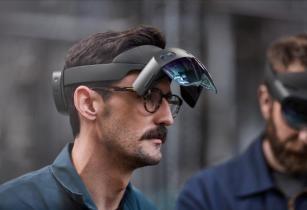ABB has launched ABB Ability Augmented Field procedures with an aim to drive worker safety and efficiency across the energy sector
Developed specifically to meet the needs of field operators, the technology is expected to empower seamless integration between the field and the plant distributed control system offering improved safety, reducing the risk for human error and making field operations more efficient.
With more than 20 per cent of industrial downtime reportedly due to human error, ABB Ability Augmented Field Procedures are set to enable consistency when executing manual procedures, standardising operating procedures and maintenance or repair techniques in the field, tightening field to control room integration and digitally recording notes to ensure operational knowledge is captured and utilised.
Unlike traditional paper-based operating procedures, the technology enables interactive execution of procedures using a mobile device to guide operators through each step in a consistent, effective and safe way.
“Human error continues to be a significant contributing factor to safety issues, as well as production down time,” said Chris Naunheimer, digital lead, energy industries, ABB. “Engineers spend considerable time using and interpreting data. With this solution, we intend to address these challenges and truly transform the future of work.”
Created in collaboration with industry majors, the system can be used in any industrial environment, in greenfield and brownfield sites, for start-up, routine maintenance, and shutdown activities.
The solution is an example of ABB’s support of workforce management enterprise applications designed to allow workers to work anywhere and manage the system on their own.
Naunheimer concluded, “During these challenging times, it is more important than ever to balance worker safety with productivity. ABB is committed to supporting both: protect people, while enabling business continuity and continued running of essential services, through providing remote access and digital tools and solutions.”





















